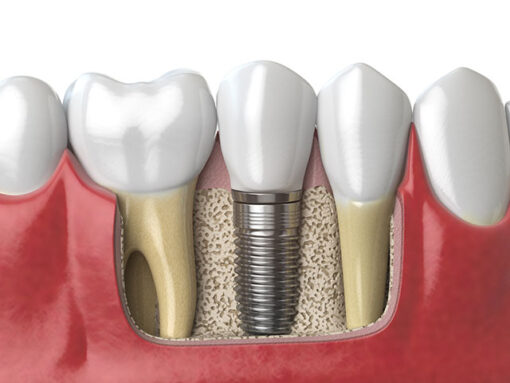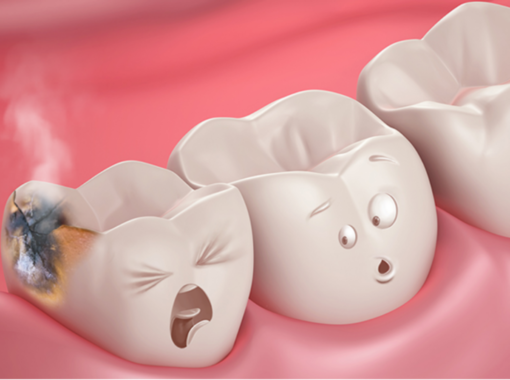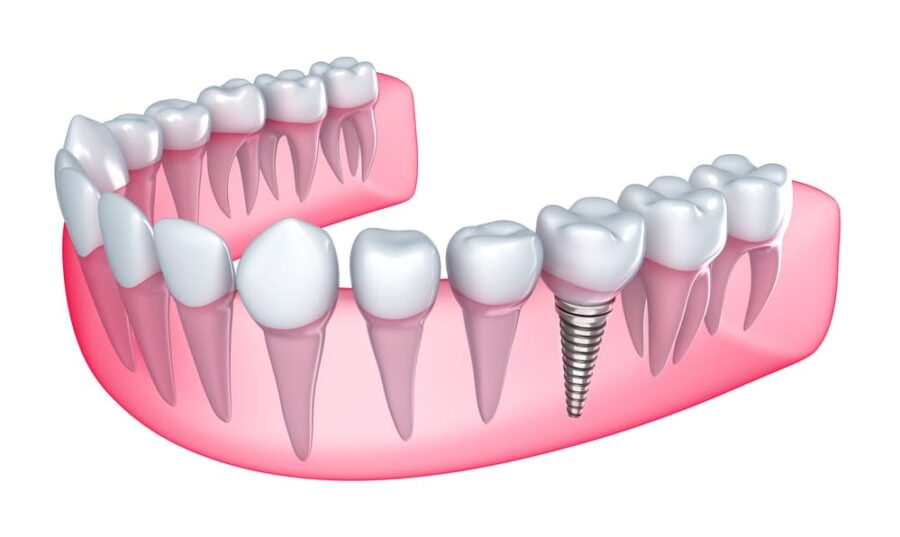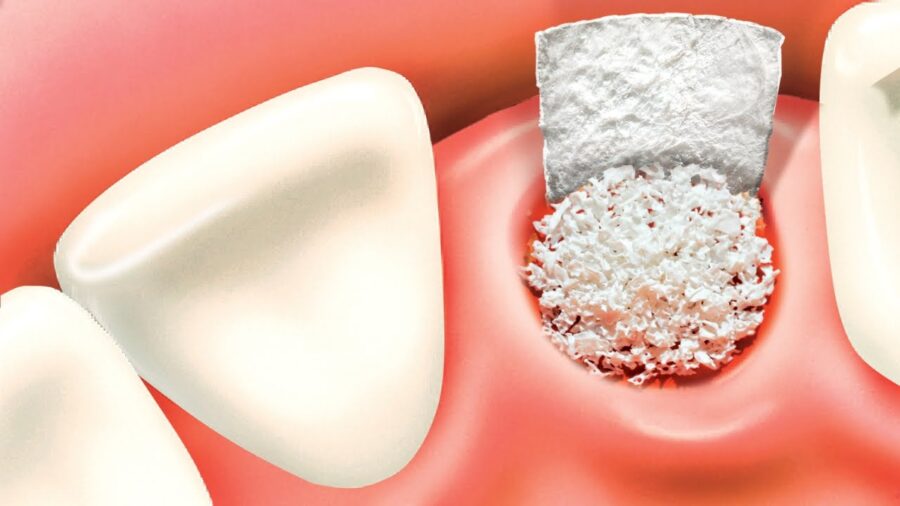Did you know that your oral health is linked to your bone health? It may come as a surprise, but recent studies have found a connection between the health of your teeth and gums and the strength of your bones. Specifically, researchers have discovered that individuals with poor oral health are at a higher risk of developing osteoporosis, a condition that weakens bones and increases the risk of fractures. This may be because both conditions share similar risk factors, such as ageing, hormonal changes, and poor nutrition. In this article, we’ll explore the surprising link between oral health and osteoporosis, and share some tips on how to maintain good oral hygiene and bone health. So whether you’re young or old, it’s never too early or late to start taking care of your teeth and bones.
Understanding Osteoporosis
Osteoporosis is a condition that affects the strength and density of bones, making them more susceptible to fractures. It is more common in women than men and is often associated with ageing. As we age, our bones become less dense, making them weaker and more prone to breaking. Other risk factors for osteoporosis include hormonal changes, such as menopause, and certain medical conditions, such as rheumatoid arthritis.
The symptoms of osteoporosis can be subtle at first, with bone loss often going unnoticed until a fracture occurs. The most common fractures associated with osteoporosis are in the hip, spine, and wrist. These fractures can cause pain, disability, and reduced quality of life, particularly in older adults.
The Link Between Oral Health and Osteoporosis
Recent studies have found a link between oral health and osteoporosis. Individuals with poor oral health, particularly those with gum disease, are at a higher risk of developing osteoporosis. This may be because both conditions share similar risk factors, such as ageing, hormonal changes, and poor nutrition. Gum disease, also known as periodontal disease, is a bacterial infection that affects the gums and supporting tissues of the teeth. It is caused by the buildup of plaque, a sticky film of bacteria that forms on the teeth. If left untreated, gum disease can lead to tooth loss and bone loss in the jaw.

Research has shown that individuals with gum disease have a lower bone density in the jawbone, which can increase the risk of tooth loss. This is because the jawbone provides support for the teeth, and as it becomes weaker, the teeth become less stable and more likely to fall out.
The Importance of Good Oral Hygiene
Good oral hygiene is important for many reasons. It helps prevent tooth decay, gum disease, and bad breath, as well as promoting overall health and well-being. Here are some reasons why good oral hygiene is essential:
Prevents tooth decay: Good oral hygiene practices, such as regular brushing and flossing, help remove plaque, a sticky film of bacteria that can build up on teeth and cause tooth decay.
Prevents gum disease: Gum disease is a serious infection of the gums that can lead to tooth loss and other health problems. Regular brushing, flossing, and professional dental cleanings can help prevent gum disease.



Helps maintain overall health: Poor oral hygiene has been linked to other health problems, such as heart disease, diabetes, and stroke. By maintaining good oral hygiene, you can help reduce your risk of these and other health problems.
Prevents bad breath: Bad breath can be caused by poor oral hygiene, as well as other factors. By brushing and flossing regularly, you can help prevent bad breath and keep your mouth feeling fresh and clean.
Saves money: Preventing tooth decay and gum disease through good oral hygiene practices can help you avoid costly dental procedures, such as fillings, root canals, and gum surgery.
Dental Procedures and impact on Bone | Osteoporosis
Dental procedures can have an impact on bone health, depending on the type of procedure and the individual’s overall bone density and health status. Here are some common dental procedures and their potential impact on bone health:
Tooth extraction: Tooth extraction can lead to bone loss in the jaw, especially if the tooth is not replaced with a dental implant or other restoration. Over time, the bone around the extraction site may shrink, leading to changes in the shape and function of the jaw.
Dental implants: Dental implants are artificial tooth roots that are placed in the jawbone to support replacement teeth. Implants require a healthy jawbone to be successful, so individuals with low bone density or other bone health issues may not be good candidates for the procedure.
Periodontal surgery: Periodontal surgery is used to treat gum disease and involves removing infected tissue and reshaping the gums. The procedure can affect bone health if it involves removing bone tissue from the jaw, which may weaken the bone and increase the risk of tooth loss.
Bone grafting: Bone grafting is a procedure used to add bone tissue to the jaw in preparation for dental implants or other restorations. The bone tissue used for grafting can come from the patient’s own body or from a donor source. Bone grafting can improve bone density and health in the jaw, making it more likely that dental implants will be successful.
Tips for Maintaining Good Oral Health and strong Bone
★ Brush your teeth twice a day with fluoride toothpaste
Floss daily to remove plaque and bacteria from between the teeth and along the gumline
★ Visit the dentist regularly for check-ups and cleanings
Eat a healthy diet rich in calcium and vitamin D
★ Avoid tobacco products, which can increase the risk of gum disease and bone loss
Exercise regularly to improve bone density and overall health
Foods That Promote Oral and Bone Health
★ Dairy products, such as milk, cheese, and yoghurt, are good sources of calcium
Leafy green vegetables, such as kale and spinach, are also good sources of calcium
★ Fatty fish, such as salmon and tuna, which are high in vitamin D
Nuts and seeds, which are good sources of calcium, magnesium, and other nutrients important for bone health
★ Fresh fruits and vegetables, which are high in antioxidants and other nutrients that promote oral and overall health
Exercises that can Improve Bone Health | Osteoporosis
Weight-bearing exercises: Weight-bearing exercises, such as walking, jogging, hiking, dancing, and playing tennis, can help improve bone density and strength by putting stress on the bones. These exercises work by stimulating bone growth and remodeling, which can help improve bone health.
Resistance training: Resistance training, such as weight lifting, can help improve bone density and strength by putting stress on the bones. Resistance training works by stimulating bone growth and remodeling, which can help improve bone health.
Balance and stability exercises: Balance and stability exercises, such as yoga, tai chi, and Pilates, can help improve bone health by reducing the risk of falls and fractures. These exercises work by improving balance, coordination, and stability, which can help reduce the risk of falls and improve overall bone health.
Exercises that can Improve Bone Health | Osteoporosis
High-impact exercises: High-impact exercises, such as jumping and plyometrics, can help improve bone density and strength by putting stress on the bones. These exercises work by stimulating bone growth and remodeling, which can help improve bone health.
Low-impact exercises: Low-impact exercises, such as swimming and cycling, can also be beneficial for bone health by improving cardiovascular fitness and overall health. While they may not provide as much direct stimulation to the bones as weight-bearing and high-impact exercises, they can still help improve bone health indirectly by promoting overall health and well-being.
It is important to consult with a healthcare provider before starting a new exercise program, especially if you have a history of bone loss, fractures, or other bone health issues. A healthcare provider can help determine the best exercises and intensity levels for your individual needs and help you develop a safe and effective exercise program to improve bone health.
Role of Supplements in Maintaining Bone Health | Osteoporosis
Calcium: Calcium is essential for building and maintaining strong bones. It is recommended that adults get 1,000-1,200 milligrams of calcium per day, depending on their age and sex. Good sources of calcium include dairy products, leafy green vegetables, and fortified foods such as orange juice and cereal. Calcium supplements can also be taken if dietary intake is insufficient.
Vitamin D: Vitamin D helps the body absorb calcium and is essential for bone health. It is recommended that adults get 600-800 international units (IU) of vitamin D per day, depending on their age and sex. Good sources of vitamin D include fatty fish, egg yolks, and fortified foods such as milk and cereal. Vitamin D supplements can also be taken if dietary intake is insufficient.
Magnesium: Magnesium is important for bone health because it helps the body absorb calcium. It is recommended that adults get 310-420 milligrams of magnesium per day, depending on their age and sex. Good sources of magnesium include nuts, seeds, whole grains, and leafy green vegetables. Magnesium supplements can also be taken if dietary intake is insufficient.
Vitamin K: Vitamin K is important for bone health because it helps regulate calcium and prevent bone loss. It is recommended that adults get 90-120 micrograms of vitamin K per day, depending on their age and sex. Good sources of vitamin K include leafy green vegetables, such as spinach and kale. Vitamin K supplements can also be taken if dietary intake is insufficient.
Conclusion
In conclusion, maintaining good oral health is essential for preserving bone density and reducing the risk of osteoporosis. By practising good oral hygiene, eating a healthy diet, and exercising regularly, you can help ensure that your teeth and bones stay strong and healthy. If you have any concerns about your oral or bone health, be sure to talk to your dentist or doctor. With the right care and attention, you can enjoy a lifetime of healthy teeth and bones.






